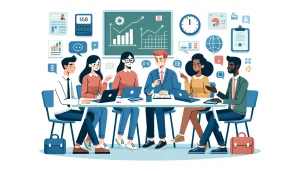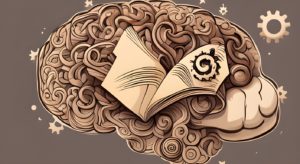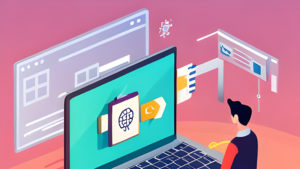Maximize Learning Potential with Microlearning: Enhancing Long-Term Memory Recall
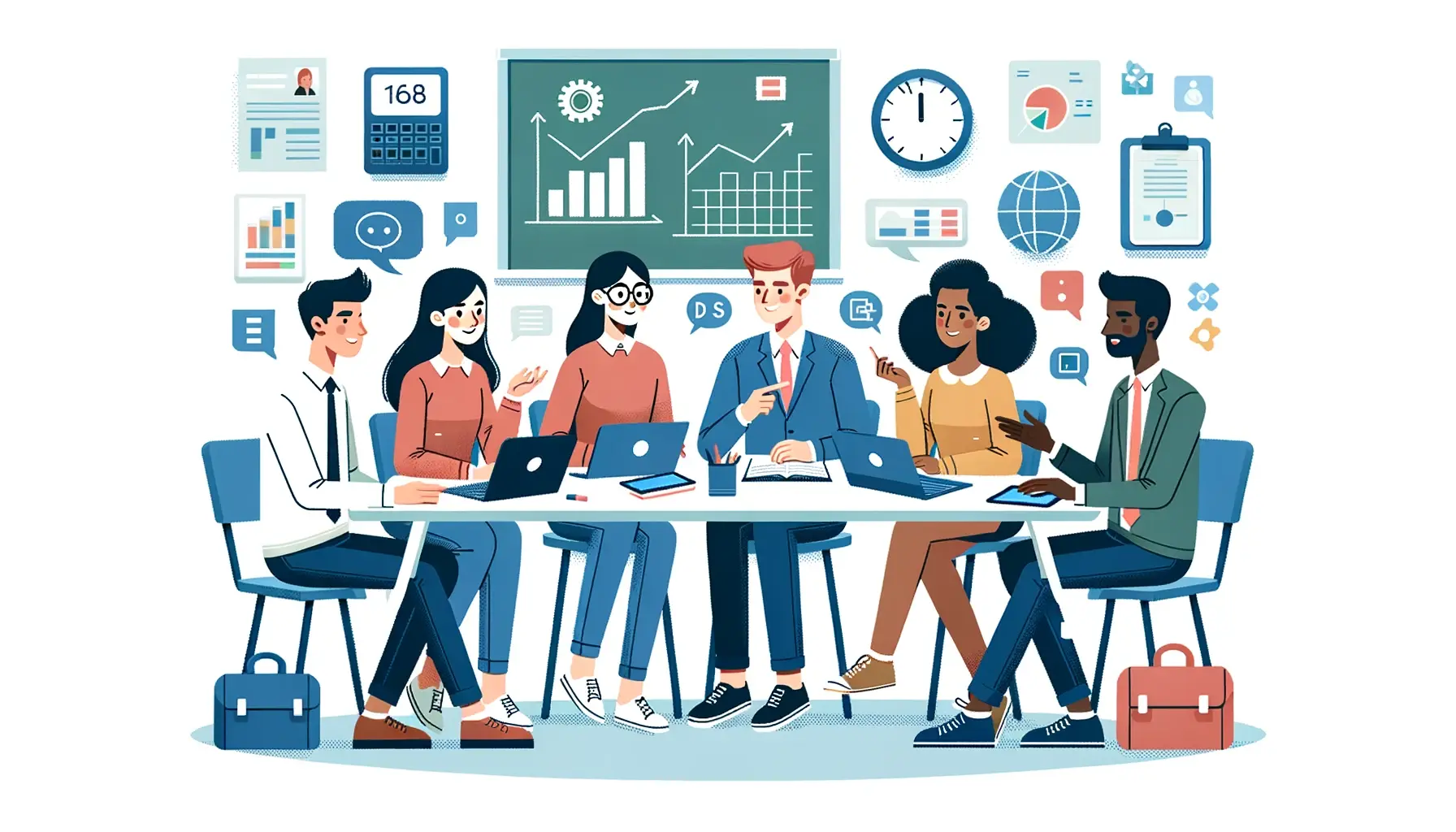
Table of Contents
Navigating the Shift from Conventional to Concise Learning Strategies
Welcome to the world of microlearning, where big knowledge comes in small doses. Traditional education struggles to keep up with our fast-paced society and often fails to support long-term memory.
Microlearning changes that by presenting bite-sized, focused pieces of information instead of large, bulky blocks. This aligns with our brain’s natural tendency to “chunk” information.
This approach to learning creates a simpler and easier way to study. It’s about making information easier to understand and easier to remember. Whether you’re facing an academic challenge, looking for professional development, or leading a training program, microlearning can be your best learning ally.
Dive in and join us as we discover how microlearning is reshaping the learning environment. Ensuring a pathway where excellence and productivity blend together.
What is Microlearning?

Microlearning is an innovative approach to learning that focuses on delivering small, targeted bursts of information. It breaks down complex concepts into digestible modules, providing you with the key knowledge you need to succeed. This approach presents information in a concise and engaging manner, unlike traditional learning methods that overload your brain with excessive information.
The beauty of microlearning is its flexibility. It can take many forms, including short videos, interactive quizzes, infographics, or even text-based modules. This versatility allows learners to choose the format that best suits their preferences and learning styles. As a result, you can learn anytime, anywhere, and at your own pace.
Microlearning also promotes active learning. It encourages you to actively engage with content. Instead of passively consuming information, you are required to participate in activities, answer questions, and apply your knowledge. This active engagement increases comprehension and retention, leading to better long-term recall.
In summary, microlearning is a learner-centric approach that delivers focused, bite-sized content in a variety of formats to enhance active engagement and long-term recall.
The Science Behind Microlearning
The effectiveness of microlearning in improving long-term memory retention is due to the way our brains naturally process and store information. Our brains have a limited capacity for attention and information processing, and traditional learning methods often overwhelm this capacity, resulting in poor retention.
Chunking
Chunking is the process of grouping related pieces of information together, making it easier for our brains to process and remember. By breaking down complex concepts into smaller, more manageable chunks, we allow our brains to focus on one piece of information at a time, increasing comprehension and memory retention.
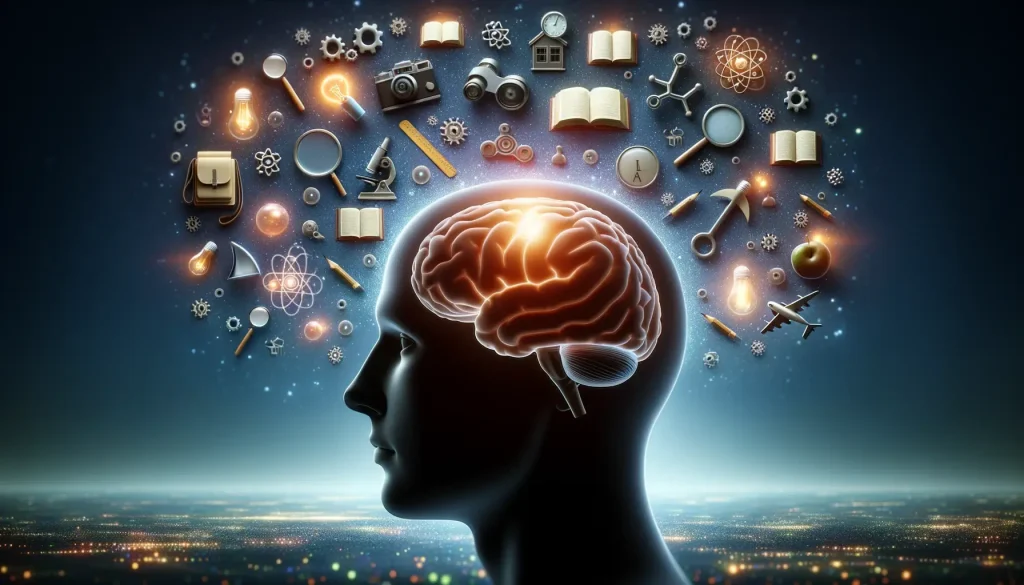
Spacing Effect
This is a phenomenon in cognitive psychology that suggests you store information better when you spread it out over time. Instead of cramming large amounts of information into a single study session, you use periodic, spaced repetition. This spaced repetition strengthens neural connections and improves memory retrieval, leading to better long-term retention.
Active Recall
Active recall is a powerful learning technique that involves actively retrieving information from memory. Engaging in activities such as quizzes, flashcards, or exercises forces you to retrieve information from your long-term memory. This strengthens the neural pathways associated with that information. This active retrieval improves memory recall and long-term retention.
In summary, microlearning aligns with our brain’s natural information processing mechanisms, using chunking, spacing, and active recall to enhance memory recall and improve long-term retention.
Benefits on Long-Term Memory recall
Microlearning offers numerous benefits when it comes to improving long-term memory recall. Let’s explore some of the key benefits:
- Improved retention: Microlearning’s focused, precise style boosts memorization over classic learning methods. By breaking information down into bite-sized chunks, you are able to fully process and internalize the content.
- Increased engagement: Microlearning allows you to access content anytime, anywhere and on any device. This flexibility allows you to engage with the material at your convenience.
- Flexibility and accessibility: Microlearning allows learners to access content anytime, anywhere, and on any device. This flexibility enables learners to engage with the material at their convenience, leading to more frequent exposure and better memory consolidation.
- Personalized learning: You can tailor microlearning to your individual needs and preferences. You can choose the format, pace, and order of modules. This gives you a more personalized learning experience.
- Efficiency and time-saving: Microlearning focuses on delivering essential information while eliminating unnecessary content. This simplified approach saves time and allows you to focus on the most important points
In summary, microlearning offers benefits such as improved retention, increased engagement, flexibility, personalized learning, and time savings. All of which contribute to improved long-term memory recall.
Techniques and Strategies
To maximize the effectiveness for long-term memory recall, it’s important to use the right techniques and strategies. Here are a few proven approaches:
- Chunking content: Breaking down complex concepts into smaller, more manageable chunks makes it easier for you to process and remember information. Each chunk should focus on a specific topic or subtopic to ensure clarity and reduce cognitive load.
- Visual aids and multimedia: Incorporating visuals such as charts, infographics, or videos improves comprehension and recall. Visuals help you make mental associations and provide visual cues that help you retrieve information.
- Interactive elements: Engage through interactive elements such as quizzes, simulations, or gamification. Interactive activities require you to actively retrieve information.
- Spaced repetition: Incorporate spaced repetition to strengthen your neural connections. Revisit previously learned content at regular intervals.
- Real-life application: Connect information to real-life scenarios and practical applications. You are more likely to remember information that you can relate to and apply in your daily life.

Remember, the key is to design microlearning modules that meet your needs, preferences, and learning style. By using these techniques and strategies, you can optimize memory recall and ensure a successful learning experience.
Creating Effective Microlearning Content
Creating effective microlearning content requires careful planning and consideration. Here are some essential elements to keep in mind:
- Clear learning objectives: Set clear learning objectives for each module. Clearly communicate what you should achieve or understand after completing the module.
- Engaging and concise content: Keep the content focused, concise, and easily digestible. Avoid overwhelming learners with unnecessary information. Use clear and simple language to maximize comprehension.
- Visual appeal: Incorporate visually appealing elements to improve engagement. Use relevant images, videos, or infographics to support your content and make it more memorable.
- Interactivity: Include interactive elements that require you to actively engage with the content. This could include quizzes, simulations, or interactive exercises.
- Progress tracking: Give yourself a way to track your progress and achievements. This could be through progress bars, badges, or completion certificates. Progress tracking increases motivation.
By incorporating these elements into your microlearning content, you can create engaging and effective modules that optimize memory recall and facilitate meaningful learning experiences.
Microlearning Platforms and Tools
Numerous microlearning platforms and tools are available to help you create and deliver effective learning material. Here are a few popular options:
- Learning management systems (LMS): LMS platforms, such as Moodle or Canvas, provide comprehensive tools for creating, delivering, and tracking modules. LMSs often offer features such as quizzes, progress tracking, and multimedia integration.
- Authoring tools: Authoring tools like Articulate Storyline or Adobe Captivate enable you to create interactive and engaging content without extensive programming knowledge. These tools provide templates, multimedia integration, and interactivity options.
- Gamification platforms: Gamification platforms like Kahoot! or Classcraft add a gamified element to studying. These platforms enable you to create interactive quizzes, leaderboards, and rewards, making the learning experience more enjoyable and engaging.
- Mobile learning apps: Mobile learning apps like Duolingo or Quizlet offer modules that can be accessed on smartphones or tablets. These apps often include interactive exercises, flashcards, and progress tracking features.
When choosing a platform or tool, consider your specific needs, budget, and technical requirements. Choose a platform that aligns with your goals and provides the features you need to create and deliver effective content.
Measuring Effectiveness
To evaluate the effectiveness of microlearning and its impact on your long-term recall, it’s important to measure key metrics. Here are a few metrics to consider:
- Retention rates: Measure the percentage of information retained after completing learning modules. This can be done through quizzes, assessments, or knowledge checks.
- Performance improvement: Track your performance improvement over time. Compare your retention rates before and after using microlearning to assess the impact on your memory recall.
- Engagement metrics: Monitor your engagement with the study modules. Including metrics as time spent, completion rates, and times studied. High engagement indicates active participation and increased memory recall.
By measuring these metrics, you can assess the effectiveness of your study program and make data-driven decisions to optimize learning outcomes.
Challenges and limitations
Microlearning offers many benefits. However, it is important to recognize the challenges and limitations associated with this approach. Here are some potential challenges to consider:
- Content selection: Selecting the right content to include in your study module can be challenging. It requires careful consideration of the most important information, while avoiding oversimplification or omission of necessary details.
- Motivation and self-discipline: Microlearning relies on your self-motivation and discipline to engage with the content on a regular basis. Some learners may struggle with self-paced learning and require additional support or accountability.
- Combining with existing learning programs: Integrating microlearning into existing learning programs or assignments can be challenging. It requires careful planning and coordination to ensure consistency and alignment with other learning resources.
Conclusion: Harnessing the power of microlearning for optimal learning outcomes
Microlearning changes how we learn, providing a practical and efficient approach to increase long-term memory retention. Breaking information into smaller pieces helps our brain process and remember it more easily.
The benefits of microlearning are numerous, from improved retention and increased engagement to flexibility and personalized learning. By employing techniques such as chunking content, incorporating visual aids, and promoting active recall, you can optimize memory recall and facilitate meaningful learning experiences.

Microlearning platforms and tools provide the necessary infrastructure to create and deliver effective content. By measuring key metrics, evaluating learner performance, and addressing challenges, you can continually improve the efficacy of your study initiatives.
So, embrace the power of microlearning and unlock your learning potential. With its ability to enhance long-term memory recall, it can empower you to achieve excellence and productivity in your learning journey. Start small, learn big, and maximize your learning outcomes with microlearning.





